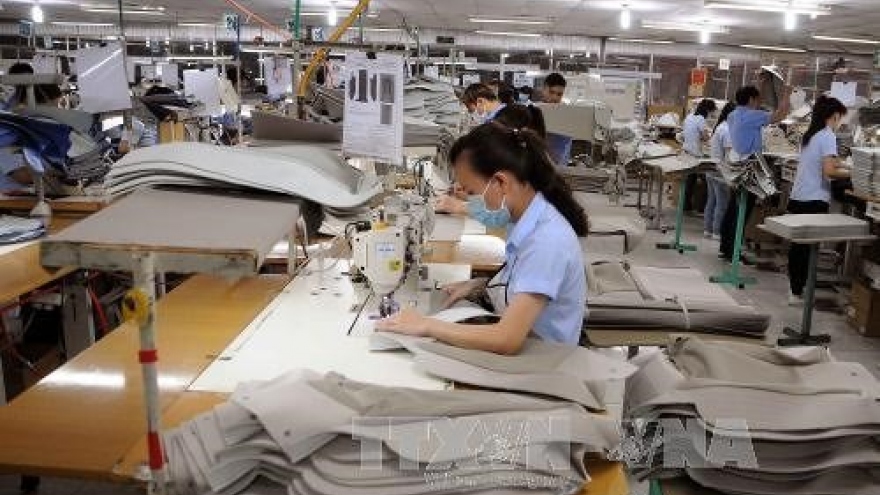Vietnam’s shoe, apparel export orders to surge
Vietnam’s leather shoe and apparel exports are forecast to pick up as international manufacturers will have to shift their production orders from China to Vietnam to avoid the adverse impacts of the U.S.-China trade war.
 |
The more opportunities, the more risks
The Ministry of Industry and Trade has reported to the prime minister the influences of the U.S.-China trade war, noting the danger of a large inflow of Chinese apparel and leather shoe products. However, from another perspective, the trade war could help Vietnamese firms expand their market share and raise exports to the United States, as international manufacturers will have to transfer their production orders from China to Vietnam.
According to Diep Thanh Kiet, vice chairman of the Vietnam Leather, Footwear and Handbag Association (LEFASO), the trade war may not affect the local shoe industry for the next one to two months because the United States, at first, will chiefly concentrate on taxing Chinese technological goods.
The tariff effect may spill over to other sectors such as footwear, garments and textiles in the next stage, bringing both opportunities and risks to Vietnamese firms, he said.
The nation may see export orders surging as importers shun China to avoid high U.S. tariffs and choose Vietnam instead. However, as other sectors, such as apparel and woodworking, will also receive more export orders, there will be tough competition for manpower between domestic and foreign-invested enterprises.
Concerns over origin cheating
Aside from real investors, Kiet of LEFASO raised concerns over Chinese enterprises that may use Vietnam as an original production location to export their products to the United States.
Some Chinese firms may open a factory in Vietnam just to finish their products before exporting them to other countries. This problem arose some 10 years ago, when Chinese companies brought their footwear products to Vietnam for packaging and export.
“The trick is very dangerous, as Vietnamese firms may bear heavy consequences. LEFASO and the administration agencies are afraid of a recurrence of this problem. However, the Government is experienced in handling the issue,” Kiet added.
For the apparel industry, a report from Saigon Securities Inc. (SSI) showed that Chinese orders have been moving to Vietnam in recent times.
Vietnam has become the first option for global firms due to its low labor cost and numerous free trade deals. Besides this, China is changing its focus from apparel to the technology sector.
Pham Xuan Hong, chairman of the HCMC Association of Garments, Textiles, Embroidery and Knitting, claimed the shift will evolve if the trade war continues. Therefore, administration agencies must be cautious about Chinese firms using Vietnam to conceal the true origin of their products.
Further, SSI’s research team warned that the United States may put Vietnam under special control and impose higher tax rates if apparel exports from the nation soar by 20-30% in the next few quarters.



